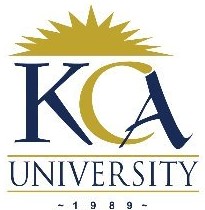
UNIVERSITY EXAMINATIONS: 2016/2017
EXAMINATION FOR THE DIPLOMA IN NETWORK FORENSICS AND
COMPUTER SECURITY
DNF502 FORENSIC POLICY & CASE WRITING
DATE: AUGUST, 2017 TIME: 2 HOURS
INSTRUCTIONS: Answer question ONE and any other TWO questions.
QUESTION ONE
a) Preparation is the key to successful trial practice. Contrary to what you see on
television, no part of trying a case is extemporaneous. From opening statement, to
cross examination, to objections you make to impassioned closing argument attacking
the credibility of an adverse witness, everything you do and say in the courtroom is
planned in advance.
In light of the above explain the purpose and technique of carrying out the following
activities in connection with both civil and criminal cases
(i) Client interview
(ii) Opening statement
(iii) Examination in-chief and Cross examination
(iv) Closing statement
(12 Marks)
b) Explain four basic components of a good client interview (8 Marks)
c) Outline two paradigms used to provide proper organizational framework for which
disputed elements that most readers expect and find useful in a policy (4 Marks)
d) Outline six factors/ steps that are critical in carrying out a comprehensive case
analysis as part of pre-trial preparation in both civil and criminal cases (6 Marks)
QUESTION TWO
a) Writing is the cornerstone of a good forensic education. If you cannot think clearly, you
cannot write clearly. Having this in mind;
(i) List and explain at least five qualities of good writing (10 Marks)
(ii) Explain the psychology of writing a good report or policy (4 Marks)
b) Explain the purpose of computer forensics in your country (6 Marks)
QUESTION THREE
a) Discuss four other forms of dispute resolution other than the courts of law (8 Marks)
b) In relation to the judicial system in Kenya, explain the legal provisions governing the
following;
i) Establishment of the High court (4 Marks)
ii) Composition of the High court (4 Marks)
iii) Jurisdiction of the High court (4 Marks)
QUESTION FOUR
a) Evidence occupies a special place and plays a crucial role in trial process. A proceeding
to trial of a case without necessary evidence is like seeking to drive a bus without steering
wheels. The choice of evidence/ witness in trial process is thus a deliberate process
dictated by various factors including the materiality and admissibility of the evidence in
question. Discuss this statement bearing in mind both civil and criminal proceedings.
(15 Marks)
b) Discuss the purpose and method of cross- examination of an expert witness in a trial
process (5 Marks)
QUESTION FIVE
a) List and explain three broad approaches of interpretation of legislation (6 Marks)
b) Briefly discuss the trial process in Kenya (10 Marks)
c) Discuss the role of a expert witness in a trial process (4 Marks)
